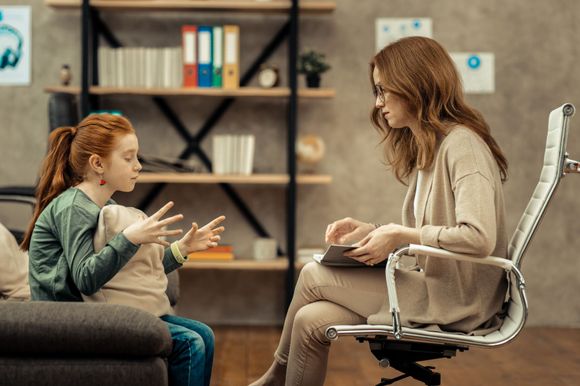About us
Some of Dr. Volpi's students, people he was working with at the time of his death, have kept this centre alive through voluntarily taking care of the archives and the clinical cases in progress.
By keeping in touch and working with some of Dr. Volpi's other students, both individuals and those who have founded their own associations, our partners at C.I.R.S.O.P.E. have put all their effort into implementing the last working methods that the doctor developed. These were regarding working together with parents to recover the child's identity.
Back to basics
The specific preparation needed to layout this complex approach as a team, which has declined in both clinical and psychoeducational aspects, served as a powerful reminder for us to go back to the source, to the origins of the innovations that Dr. Volpi put forward within the field of psychoanalysis.

Slide title
Write your caption hereButton

Slide title
Write your caption hereButton
Source availability
This is where the idea came from to not only list and make bibliographical sources available online, but to gradually make them accessible in English, so that anybody and everybody studying family relationships throughout the world, can read them, just as Dr. Volpi himself had wanted to do.
It is understood that for practical learning, personal psychoanalytical training is needed, starting from analysing the relationship with their own homologous parent and the practice supervisor.
It is the responsibility of our registered partners at C.I.R.S.O.P.E.. to undertake this initiative. Like with all formal acts, the implementations falls to the current director, Dr. Giovanna Camana.
Camana Giovanna Professional CV
Born on 27-11-1943 in Mirandola (MO), with a degree in Psychology from the University of Padova in 1984, member of the Research Centre for Educational Psychotherapy and Psychodynamics from 1981 under the direction of Dr. Vittorio Volpi. I have been a Psychoanalyst since 1985 following the methods developed at this centre which has now changed its name to the Italian Centre of Scientific Research in Psychoanalysis and Education. I am always actively involved in and personally carry out research and compare other psychological character approaches, some of which are the neurolinguistic programmings of Bandler, Grinder and Dilts during their first operations in Italy as well as the Jungian perspective along with Dr. Mariella Loriga. However, I prefer to continuously use and analyse in-depth the working methods from Dr. Volpi.
I therefore developed my role at the clinic to working with individuals, couples and families. I took part in and lead teams working with complex situations, both for families and for projects in schools and with various groups. I also helped found one of the two social cooperatives which originated from the field of work that Dr. Volpi promoted (Cairos copperative, which later closed). I carried out training in the field of research for professional workers which continued over many years distinguishing and organising ways of applying and extensively analysing the different socially recognised skills and roles, both psychological and non-psychological (i.e. help and support and educational in the broadest of senses). After 1998, I specifically focused on the clinical field and applying the perspective of working with parents to help restore their child's mental health. When Dr. Volpi died, I continued his group work by collaborating with Dr. Maria Grazie Palestra, who was Dr. Volpi's student and partner in C.I.R.O.P.E., in order to put together a team which would take on children with identity problems working psychoanalytically along with their parents.
I was a speaker and leader during many study days which took place at the centre as well as speaker in both regional and national conventions which took place within other organisations.
I worked at the publishing house for the magazine Analisi Psicologica until 1990.
From 1998, when Dr. Volpi died, I took on the role of Director at the Italian Centre of Scientific Research in Psychoanalysis and Education as I wanted to continue the doctor's work, primarily within the strict clinical and psycho-educational field and alternatively to using psychoanalytical tools which are aimed at education and prevention.
All this originated from comparing the potentiality of primary relationships and from the approach of availing themselves to the relationships with homologous parent as a way to confirm personal identity.
Maria Grazia Palestra CV
I began my psychological analysis in May 1980 with my Mum accompangying me, with Dr. Vittorio Volpi who founded and managed the Italian Centre of Scientific Research in the field of Psychoanalysis and Education, in corso Magenta, and then moved to via de Amicis 40.
From 1973 I worked at the Como provincial administrative agency as a social worker. I was transferred to the Local Social Health Unit (USSL) in Como during the Health Care System reforms.
In September 2918, as well as continuing my personal analysis, I enrolled in a training course to develop my professional career in the best way possible.
At that time, I joined a few activities at the research centre, and I participated in the following:
- from 30.12.1983 to 3.1.1984 - in-house psychoanalysis training course, which took place in Bannio Anzino (Valle di Macugnaga, VB) under the programme: "The social worker, psychologist, doctor, analysist, individual and group therapist's approach to psychosis and serious depression."
- from 28.12.1984 to 1.1.1985 - in-house training course on "Treatment for drug addiction" again taking place in Bannio Anzino (Valle di Macugnaga, VB) with a presentation entitled: "The social worker's approach to family dynamnics with problematic adolescents", which was published in April 1984 in the magazine "Analisi psicologica", 4th edition.
- from 3rd to 7th April 1985 - in-house training course, again taking place in the same location, on the topic of "Adolescence: Normality and Pathology", under two reports:
- "The psychoanalytical work of social workers within "teenage crisis" - collecting data, the first interview, family meetings and case studies",
- The social worker's approach to difficulties within a family with problematic adolescents (running away from home, antisocial behaviour, drug addition)":
- 8.3.1987 - study day: "Psychoanalysis within public authorities". This course took place at the Palazzo delle Stelline di Milano with a presentation entitled: "How social workers can use psychoanalytical tools in their work".
In March 1989, after resigning from the Local Social Health Unit in Como, I worked at the social cooperative C.A.I.R.O.S. (at that time in via Edolo 5, Milan), to illustrate what the cooperative did, I refer back the magazine “Analisi psicologia”, 8th ed. where the 5-night programme regarding preadolescence was published, and which I participated in as a speaker. This programme was organised by the cooperative and took place at “Ferrario” di Agrate Brianza middle school). In 1993, I moved to the Psynergie cooperative, first in via Meravigli, and then, until its liquidation, in via C. di Rienzo 35. Here I managed and supervised training courses given by workers who talked about the work they did at the two cooperative centres, attended by under 18s with severe mental health problems.
It was at this time that the three-year therapy started at the Solari di Fidenza Institute aimed at training teachers, taking on problematic students that have been reported by teachers, and to help their parents, through a series of meetings with them, understand the problems linked to their child's adolescence.
For years, I also dealt with organising initiatives at the cooperative to help the elderly working alongside the districts of S. Fermo della Battaglia (Como) and Lipomo (Como).
After the liquidation of the cooperative in 2002, when each partner found their own specific programme to follow, I took up freelance psychological practice for the spring sessions of 1998, taking advantage of former article. 34, I was able to take the state exams at the Rome Sapienza University.
During these years, I used the methods developed at the C.I.R.S.O.P.E. Research Centre (which I am now a partner of) in my work to develop help and support for parents with troubled children as well as helping children through appropriate meetings to restore their relationship with their homologous parent. I worked alongside colleagues who had had similar training to me, more specifically Dr. Giovanna Camana, who, took on the role of Centre Manager when Dr. Volpi died. Within this subject, I mainly developed the duties for workers specialised in psycho-educational sessions for children with their homologous parent, with their other parent present, following the procedures that were developed by Dr. Volpi up until 1998.
The principles that have inspired my work and methods applied can be assumed from my many articles in the magazine “Analisi psicologica”, as well as in my presentations given during the last days of the seminar organised by C.I.R.S.O.P.E. and the social cooperative Psynergie at the Palazzo delle Stelline di Milano, corso Magenta.
On the first day of the seminar held on 6th, 7th and 8th December 1997 – “The cause of mental illness in children and adolescents - how to pre-empt it, treat it, and heal it", I presented a seminar entitled: "A parent heals his institutionalised child by using psychoanalytical and educational tools". On the second of the seminar help on 25th and 26th April 1998 - "From children's and adolescents' mental illness to mental health - tools to prevent and heal", I gave a presentation entitled: "Restoring parenting skills to protect their child's mental health, with the primary aim of taking on complex cases".
Furthermore, during these years, when the person's mental health was so serious and complex that it stopped them being able to come to the studio, I specialised and worked with the family to carry out the meetings at home.







